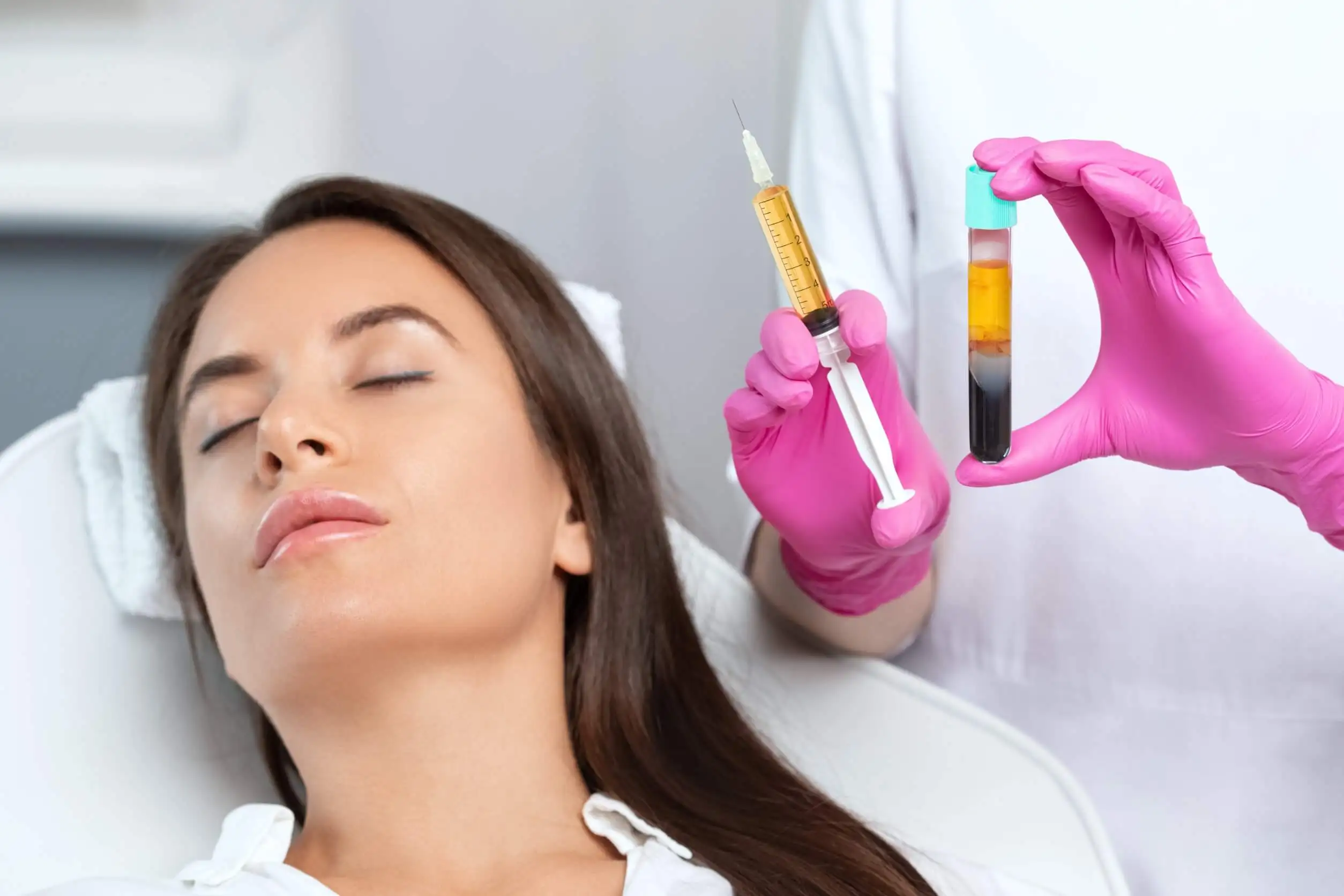Serum Therapy for the Skin: What Are Its Benefits?


Written and verified by the doctor Mariel Mendoza
Currently, serum therapy has become well-known as a simple, fast, and effective method with multiple benefits. It’s claimed to provide the body with different substances such as antioxidants, vitamins, minerals, amino acids, and natural medications.
Administration directly into the bloodstream can avoid passing through the digestive system; thus, rapid benefits could be obtained, and up to 90% of the nutrients can be absorbed.
Serum therapy for the skin

The aim of serum therapy is to strengthen the body to promote internal changes that are manifested externally. In a global way, it promotes the cleansing of toxins and different contaminants, as well as provides essential nutrients for correct biological functioning.
Its effect on the skin is one of the most outstanding, which is why it’s widely used in the aesthetic field. Experts claim that it can improve the appearance of the skin and even combat the signs of aging.
How does serum therapy benefit the skin?
Serum therapy would benefit the luminosity, tone, texture, and elasticity of the skin, as well as the luminosity and strength of nails and hair. These benefits derive from the use of ingredients such as biotin (or vitamin B7) and glutamine, which promotes the production of collagen and elastin from connective tissue.
In addition, serum therapy contains vitamin C, which is an essential component in the production of collagen and a potent antioxidant. Likewise, it can participate in the enzymatic synthesis of different neurotransmitters.
In this way, serum therapy can help to delay the aging process (it repairs the damage caused by ultraviolet rays from sunlight and improves the appearance of wrinkles) and strengthen the nails, hair, and skin. It can also provide luminosity, improve the tone of spots, and prevent the harmful effects of free radicals.
The antioxidant effect is an important factor in the process of stopping aging. These components help to eliminate free radicals, which are responsible for cell damage and consequent aging. On the other hand, they promote wound healing, cartilage repair, and bone mineralization.
We think you may be interested in reading this, too: Mandelic Acid: What Is It and What Are its Benefits for the Skin?
Other ingredients
In addition, serum therapy may contain:
- Vitamin B12, which participates in the synthesis of blood cells, in the synthesis of DNA, and in the correct functioning of nerves.
- B complex vitamins.
- Glutamine, which participates in protein synthesis (thus contributing to the reconstruction and repair of muscle tissue).
- Different essential amino acids.
- Magnesium, an essential mineral that helps regulate mood and nervous and muscular function and is an adjuvant in the maintenance of blood pressure and blood sugar levels.
- Selenium, another essential mineral that’s involved in stimulating the immune system, fertility, and brain cognitive functions.
- Zinc.
Like this article? You may also like to read: 5 Tips to Protect the Skin Against the Effects of Air Conditioning
Serum therapy procedure
Serum therapy is the venous administration directly into the bloodstream of a customized serum. Its content should be tailored to the needs and objectives of the consumer.
It’s a fast procedure, lasting between 30 minutes and 1 hour, and nearly 100% of the nutrients are absorbed. The number of sessions and the time between each one of them is established depending on the needs and evolution of the person.
The benefit of direct administration to the bloodstream
Because serum therapy administers nutrients and drugs directly to the bloodstream, it can avoid the digestive system, so the serum is absorbed immediately and almost completely.
What are the other benefits?
In addition to having effects on the skin, serum therapy may have other benefits, among which the following stand out:
- It may strengthen the immune system and therefore prevents diseases.
- It may eliminate toxins resulting from the consumption of alcohol, tobacco, drugs, or situations of stress or inflammation.
- Serum therapy may boost energy in cases of fatigue or tiredness.
- It may reduce the symptoms of the common cold.
- It may promote physical and emotional well-being.
- Serum therapy may improve sports performance (because it provides rapid rehydration and reduces the presence of free radicals).
- It may help to regulate the sleep-wake cycle.
- Serum therapy may help accelerate the processes of healing and consolidation of fractures.
- It may diminish the deterioration of intellectual capacities and memory.
What is the scientific evidence for serum therapy?

According to Cedars-Sinai Hospital, there’s no strong scientific evidence to support its administration, especially in cases of medical conditions. It represents a fast hydration route, so there’s an immediate improvement in case of acute dehydration, such as the one evidenced after extreme exercise or after long periods without water intake.
It may also help to improve symptoms after an alcohol overload; however, it will not provide any additional benefit other than the intake of abundant liquids or drinks with salt.
On the other hand, direct administration into the bloodstream avoids the filters of the digestive tract. Thus, all nutrients are absorbed. However, it’s known that the vitamins administered in serum therapy are water soluble, and their deficiency is very rare. When these vitamins are administered intravenously, only the part required by the body is used, and the rest is excreted in the urine (up to 90% of the vitamins administered).
In addition, the administration of electrolytes without discrimination of previous blood values can cause imbalances that could be detrimental to the functioning of the body.
Therefore, intravenous therapies should only be administered after a complete medical evaluation and assessment of the person’s medical history. Likewise, they should only be carried out under strict surveillance by qualified personnel.
Intravenous vitamin therapies tend to be most indicated in the case of presenting diseases of the gastrointestinal tract that interfere with their absorption (and, therefore, lead to a deficiency).
Possible complications of serum therapy
Since this is a procedure that involves intravenous administration, there is a risk of complications. There may be a risk of infection at the point of entry into the bloodstream. In addition, in people with renal injury or liver failure, there may be an inability to eliminate excess nutrients. Also, in patients with heart problems and high blood pressure, it can lead to fluid overload. For this reason, the procedure must be previously authorized by a physician and should not be administered outside a controlled clinical environment.
Although there is no scientific evidence to support it, there are many positive testimonies of people who have used serum therapy and have obtained multiple benefits.
In case you want to do it, serum therapy that’s performed by specialists (prior to discarding counter-indications and establishing personalized requirements) can be beneficial since it can help to stimulate the body’s own mechanisms of defense, detoxification, regeneration, repair, and rejuvenation of the body’s tissues.
All cited sources were thoroughly reviewed by our team to ensure their quality, reliability, currency, and validity. The bibliography of this article was considered reliable and of academic or scientific accuracy.
- Cedars-Sinai Staff. Does IV Vitamin Therapy Work?. Cedars-Sinai Blog. 2019. Disponible en https://www.cedars-sinai.org/blog/iv-vitamin-therapy.html.
- Padayatty S, et al. Vitamin C: Intravenous use by complementary and alternative medicine practitioners and adverse effects. Plos One 2010. Disponible en https://www.ncbi.nlm.nih.gov/pmc/articles/PMC2894814/.
This text is provided for informational purposes only and does not replace consultation with a professional. If in doubt, consult your specialist.








